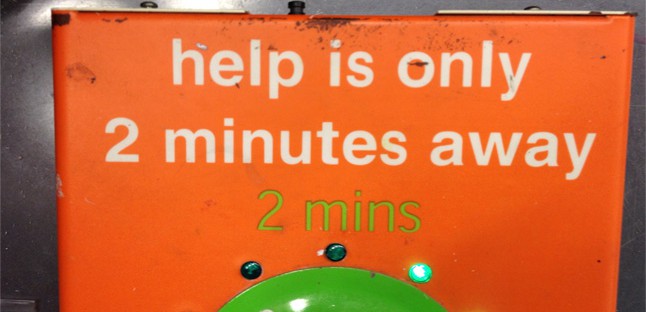Latest posts
A masterclass in creating value
What’s going on at parkrun?
Virtue-signalling all the way to the bank
Bud Light: brand purpose or virtue-signalling?
The Coddling of the American Mind, by Greg Lukianoff and Jonathan Haidt
Belonging, by Owen Eastwood
Such a simple thing
The Long Win, and The Scout Mindset
The Cult of We by Eliot Brown and Maureen Farrell
Coffee and covid modelling
By theme
Marketing strategy
Insight & metrics
Innovation & inspiration
Brand & positioning
Marketing communications
Business purpose
Leadership
By industry sector
Financial services
Retail
FMCG
Technology & start-ups
Consumer services
Business to business
Other sectors
By type
Books
Comment
Quotes
Thought leadership
It’s hardly the end of capitalism, but the horsemeat scandal is showing large food retailers and manufacturers how it feels to be a banker. Meanwhile consumers – or people, as we might style ourselves – don’t know who we can trust. Marketing is seen as manipulative, and delivering profits is represented in the media as exploitation of customers. Sam Laidlaw of Centrica announced decent but hardly sensational results last week – and had to explain to John Humphreys on the Today programme why they hadn’t forgone profits for the sake of “the squeezed middle”. Somehow being a shareholder seems to be equated with being evil, rich or plain undeserving, while all customers are seemingly in need of a discount. Yet many customers are shareholders too, interested in the long term growth of their pension pots as well as in getting a few quid off their gas bills.
So the banks are baddies, the utility providers are exploitative and now we learn that supermarkets and food manufacturers are mostly incompetents being hoist by their own over-extended-supply-chain petard (if you can say that). Morrison’s and Waitrose are out there talking about their local sourcing and close relationships with farmers. This is a highly credible response, since it’s rooted in who they are – their brand, if you like – and so is already reflected in their established working practices and instore offerings. It’s also delivering a benefit to their customers, and I hope they get their rewards.
There are other brands, not mired in scandal, which are also trying to build trust by doing Good Things, presumably to show they are nice people and therefore can be trusted. On first glance these seem like the actions of a very caring company – but look closer and you’ll see it’s not about doing what’s best for their customers, it’s about caring about their own reputation, and looking like a nice company. When Virgin Trains finally won their legal battle against the flawed tendering process for the West Coast main line franchise, The Bearded One “pledged to donate all profits to good causes”. Why, for goodness sake? If you don’t want them Richard, have you thought that maybe your customers might? Why give the profits to charidee when you could reinvest them in making the service better or cheaper for the people who generated those profits in the first place. Then there’s Simply Health, the people who advertise that they “can be bothered”. For every like they get on Facebook they’ll give £1 to medical research, and they’ve made a TV ad about it. This is just daft. Give money to research by all means, but don’t waste serious money telling people about it. We don’t care! Better still, why not spend the money doing something for customers, and make an ad about that? Then they might win more customers. As it is, a customer could be quite annoyed that they’re spending money advertising a giveaway which non-customers can increase. Businesses have a responsibility – both to their customers and to their shareholders – to care about their customers, but that’s not about being nice, it’s about keeping customers satisfied, so as to keep customers.
I saw a lovely example in Homebase, which may be driven out of the necessity to reduce staff numbers in quieter periods, but which recognises the value of customers’ time. There’s a big colourful button at the paint mixing stations which you press for service if there’s no one there. If they don’t come in 2 minutes you get 10% off your paint. Pizza companies have long used these approaches – if it takes more than 30 minutes it’s free – as a way of showing their confidence in their speedy delivery. This is a bit different, because you’ll only press the button if there’s no one there to serve you; it says, we know that waiting around is a drag so either you won’t have to do it or we’ll compensate you. Now that’s the kind of caring I’m interested in. Homebase can give a fiver to Richard Branson every time the button is pushed for all I care*; as long as they’re putting me and my needs first, I can recommend them.
*though I’d rather they didn’t so if you do, Homebase, please don’t tell me, I’d rather not know.
Latest posts
A masterclass in creating value
What’s going on at parkrun?
Virtue-signalling all the way to the bank
Bud Light: brand purpose or virtue-signalling?
The Coddling of the American Mind, by Greg Lukianoff and Jonathan Haidt
Belonging, by Owen Eastwood
Such a simple thing
The Long Win, and The Scout Mindset
The Cult of We by Eliot Brown and Maureen Farrell
Coffee and covid modelling
By theme
Marketing strategy
Insight & metrics
Innovation & inspiration
Brand & positioning
Marketing communications
Business purpose
Leadership
By industry sector
Financial services
Retail
FMCG
Technology & start-ups
Consumer services
Business to business
Other sectors
By type
Books
Comment
Quotes
Thought leadership
